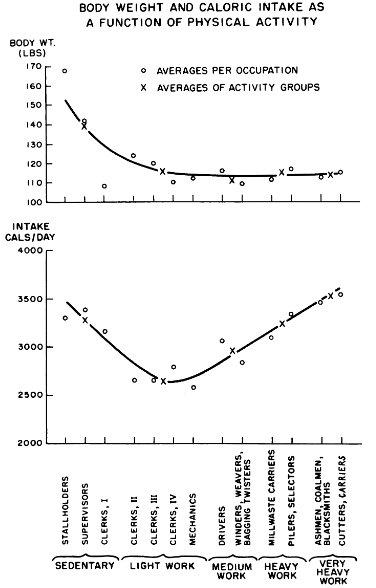There is a lot of important research out there on subjects like exercise physiology and nutrition. I’m not a researcher and I have a difficult time deciphering information that I know is useful to me and my clients. So I appreciate Alex Hutchinson’s Sweat Science blog in Runner’s World. He does a great job of discussing complex research findings in language that I can understand.
A recent Sweat Science post titled the Jute Diet details some tremendously important research regarding the intimate relationship between physical activity and appetite. The research is from the 1950s so I was completely surprised that I didn’t already know this information. From the blog post:
“What you see is that, above a certain level of physical activity, caloric intake increases linearly and weight is stable. For these workers, the body’s “balance” mechanism is functioning, and those who burn more calories also consume proportionately more calories.
“But below a certain level of physical activity, the appetite balance breaks down. Caloric intake rises again, and these workers are the ones who gain weight. The researchers call this “’he sedentary zone,’ and suggest that the regulation of food intake breaks down in this zone because ‘in his hundreds of years of evolution, man did not have any opportunity for sedentary life except very recently.'”
Hutchinson references other research that supports this idea that physical activity strongly influences body weight. More supporting research can be seen here, here and here. (Beyond that, some of the research shows a dose-response relationship in which more and more vigorous activity yields more weight loss and better weight-loss maintenance.)
I’ve never thought about the effect that exercise has on appetite beyond that it probably increases it. That exercise may make appetite more accurate is very interesting to me.
I have found that I tend to lose weight when I’m training a lot. When I try and track my calories while training I often find that I go over my suggested caloric intake and I still lose weight. I simply eat the amount that feels right and I’m able to maintain or improve my body composition. It’s much tougher to do though when I’m not training hard. That’s been a curious thing to me. This research seems to speak to my observations.

